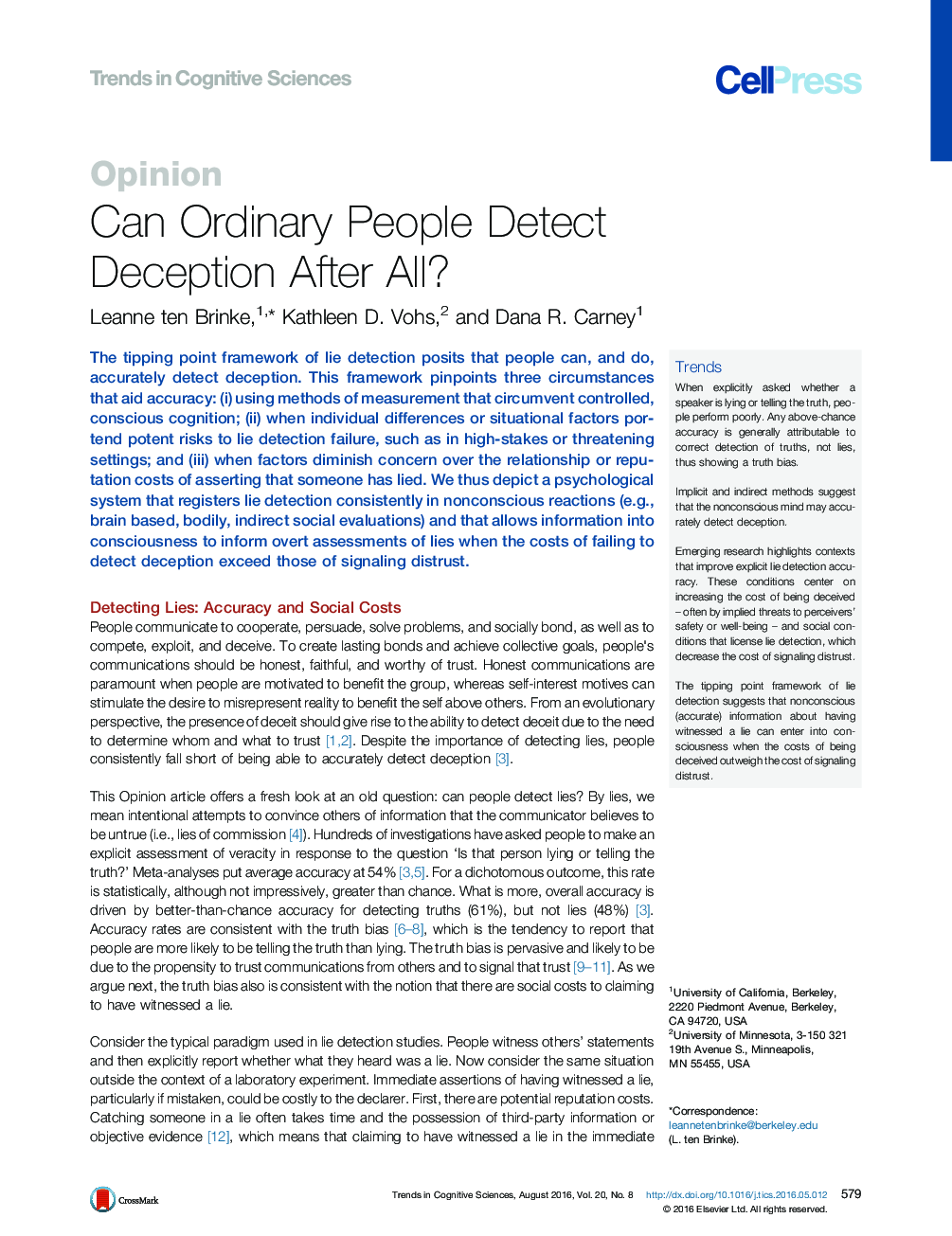| کد مقاله | کد نشریه | سال انتشار | مقاله انگلیسی | نسخه تمام متن |
|---|---|---|---|---|
| 141333 | 162856 | 2016 | 10 صفحه PDF | دانلود رایگان |
The tipping point framework of lie detection posits that people can, and do, accurately detect deception. This framework pinpoints three circumstances that aid accuracy: (i) using methods of measurement that circumvent controlled, conscious cognition; (ii) when individual differences or situational factors portend potent risks to lie detection failure, such as in high-stakes or threatening settings; and (iii) when factors diminish concern over the relationship or reputation costs of asserting that someone has lied. We thus depict a psychological system that registers lie detection consistently in nonconscious reactions (e.g., brain based, bodily, indirect social evaluations) and that allows information into consciousness to inform overt assessments of lies when the costs of failing to detect deception exceed those of signaling distrust.
TrendsWhen explicitly asked whether a speaker is lying or telling the truth, people perform poorly. Any above-chance accuracy is generally attributable to correct detection of truths, not lies, thus showing a truth bias.Implicit and indirect methods suggest that the nonconscious mind may accurately detect deception.Emerging research highlights contexts that improve explicit lie detection accuracy. These conditions center on increasing the cost of being deceived – often by implied threats to perceivers’ safety or well-being – and social conditions that license lie detection, which decrease the cost of signaling distrust.The tipping point framework of lie detection suggests that nonconscious (accurate) information about having witnessed a lie can enter into consciousness when the costs of being deceived outweigh the cost of signaling distrust.
Journal: - Volume 20, Issue 8, August 2016, Pages 579–588
